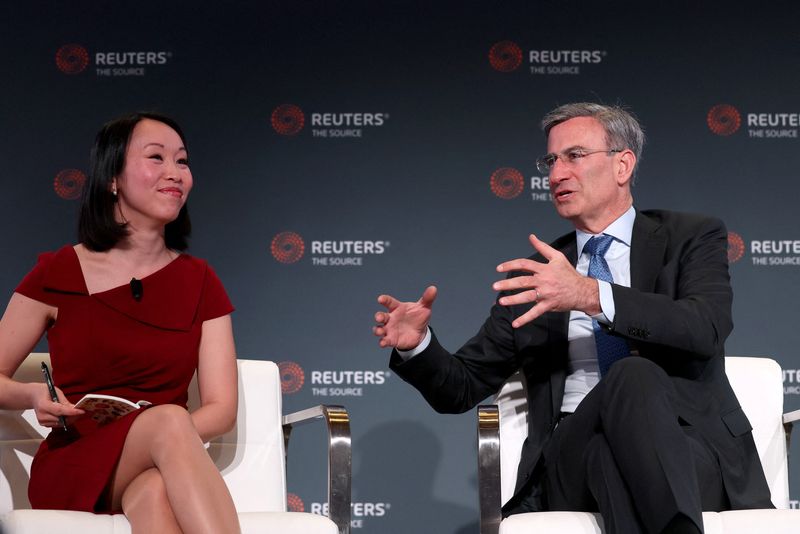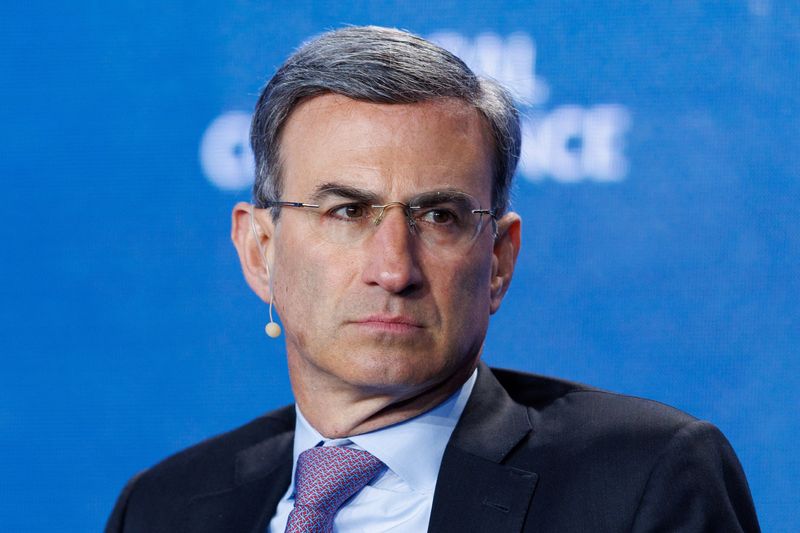By Lananh Nguyen
NEW YORK (Reuters) -Lazard's new Chief Executive Officer Peter Orszag said escalating geopolitical tensions in China, Ukraine and the Middle East have become a top focus for clients.
"It's pretty simple - you can't make a big business decision today without a geopolitical perspective," Orszag said in an interview at the Reuters NEXT conference in New York.
"There is no such thing as an isolated business decision today, you can't just look at the Excel spreadsheet and say yes or no, you have to have the context," said Orszag who took the helm at the independent investment bank last month.
Lazard (NYSE:LAZ) has a geopolitical advisory unit that analyzes world events and their potential impact on clients' businesses. For example, investors in China who should factor in rising risks there, the CEO said.
"If you were investing today as a business in expanded Chinese operations, you need to be prepared for that to go to zero overnight," he said.
Orszag set an ambitious goal of doubling the investment bank's revenue by 2030. He also made a raft of personnel changes at the 175-year-old firm.
But the new CEO has stepped in during lean times for Wall Street. Some investment banks have laid off thousands of employees and cut other costs after several quarters of lethargic dealmaking.
Lazard's profit sank in the third quarter and fell short of analyst estimates. Still, Orszag said the market for mergers and acquisitions was bottoming out and giving way to more constructive discussions with clients about potential deals.
"There still are lots of catalysts for activity" in technology and life sciences, he said. And companies are more willing to strike deals as the interest rate environment stabilizes and corporations take on antitrust authorities.
Other Wall Street executives are also becoming more optimistic about a potential recovery in dealmaking next year. But they have also cited risks to the outlook, including conflicts in Ukraine and the Middle East that have fueled uncertainty and weighed on sentiment.
On Wednesday, Bank of America CEO Brian Moynihan told the conference he expects a soft landing in which the U.S. economy avoids a recession.
In the wake of the regional banking crisis in March, "what clearly has to happen is some degree of consolidation," said Orszag, who previously served as the director of the office of management and budget in the Obama administration. But antitrust regulators may continue to block deals outside of crises, he said.

"We're not out of the woods completely," he said, citing regional banks' exposure to higher interest rates, commercial real estate and rising consumer delinquencies.
To view the live broadcast of the World Stage go to the Reuters NEXT news page: https://www.reuters.com/world/reuters-next/
